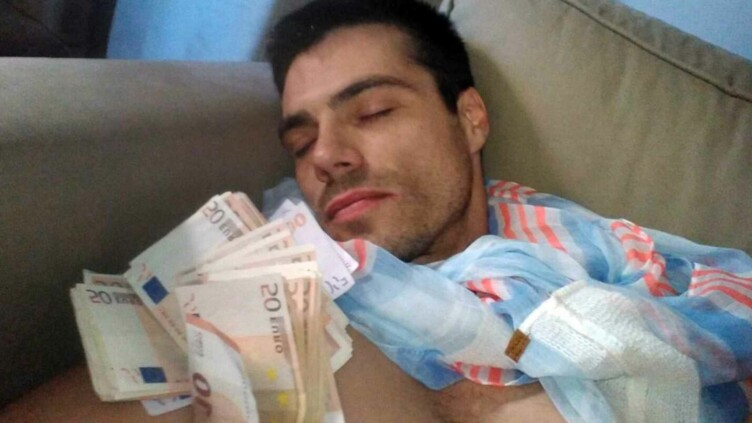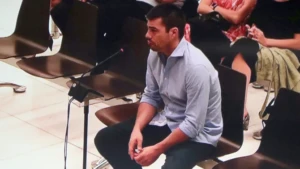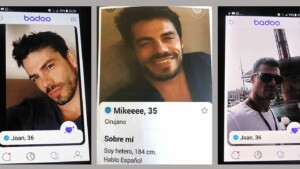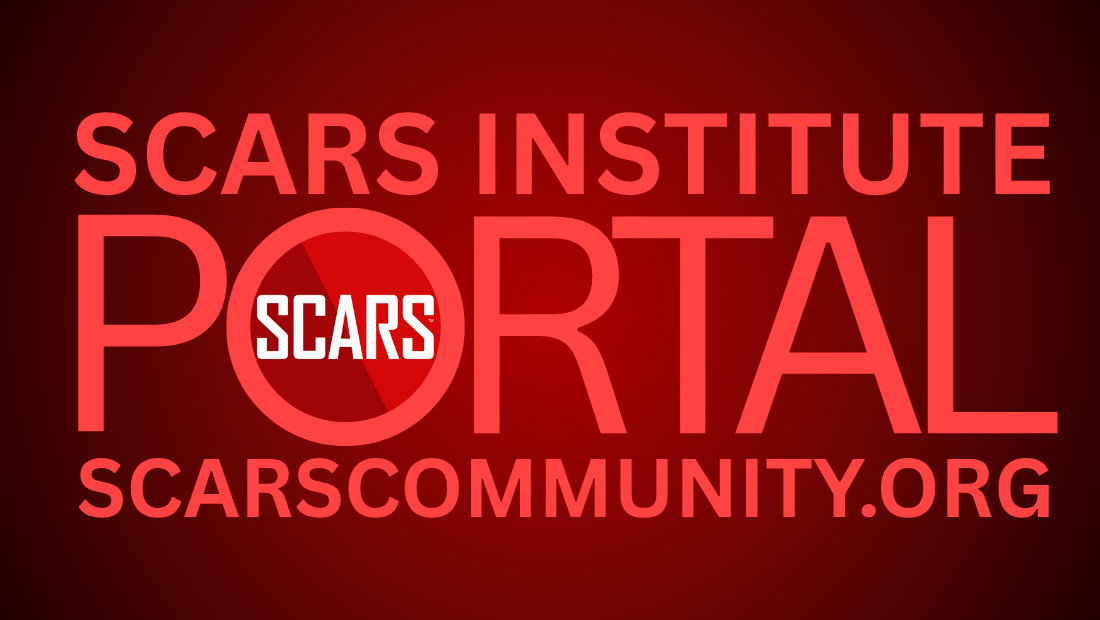Albert Cavallé – Love Scammer In A Spanish Prison
The End of a Famous Spanish Romance Scammer
Author:
• SCARS Editorial Team – Society of Citizens Against Relationship Scams Inc., Portions from News Media
Article Abstract
Albert Cavallé, notorious for defrauding over twenty women, has been apprehended after six months in hiding and is now incarcerated at Spanish Lledoners prison. The Barcelona Court issued his arrest for deceiving six women, prompting Cavallé, dubbed the ‘love scammer,’ to surrender. Victims, demanding justice for years, witness a significant victory as he begins serving a sentence of two years and three months for scamming six victims of €68,500.
Cavallé, adopting various false identities on dating apps, manipulated victims with fake professions and financial claims. The ‘love scammer’ faces additional trials while incarcerated for his fraudulent activities.
Albert Cavallé – The ‘Love Scammer’ Enters Prison After Spending Six Months In Hiding
Albert Cavallé appeared this Monday at the Spanish Lledoners prison, accompanied and advised by his lawyer.
The Barcelona Court had ordered the police to locate and arrest him so that he could serve a sentence for deceiving six women.
He has spent almost half a year at an unknown location, in hiding, since the Barcelona Court ordered, last June, his arrest and imprisonment. But since then, Albert Cavallé, the young Catalan convicted of defrauding more than twenty women, is no longer a free man.
He has gone to prison seven and a half years after a woman filed the first complaint against him.
The Case
The man known as the ‘love scammer’ decided to come out of hiding and appear at the Lledoners penitentiary center. He has done so accompanied and advised by his lawyer, David Sans, who has defended him in recent years in the more than twenty proceedings that the until now the fugitive has accumulated.
The Victims
Cavallé’s victims have been demanding for years that the scammer go to jail and that he finally begin to serve some of the sentences that have already been imposed on him (he has four convictions that are already final), especially after the scammer did not appear at several of the trials that were to be held against him.
The struggle of these women sees it bear fruit today. The ‘love scammer’ is already behind bars and he must serve, for the moment, a sentence of two years and three months for deceiving six victims, from whom he managed to get 68,500 euros.
Cavallé himself acknowledged during the trial that he used applications such as Tinder and Badoo, posing as a lawyer, investor, surgeon, or son of the millionaire owners of a renowned clinic in Barcelona to pretend “financial solvency” and establish a relationship with his victims to scam them. Among his deceptions, he claimed to work and have accounts in Panama, with which he managed to get one of the women to give him 49,000 euros in cash in several installments.
Planas Clinic
“I met him in May 2017 on Badoo. He introduced himself as a renowned surgeon, the son of the owner of the Planas clinic in Barcelona, for cosmetic surgery. He told me that he had accounts in Panama and made many trips to that country.” With this profile, “to appear solvent”, the so-called ‘love scammer’ managed to convince a Catalan woman, with whom he “started a false romantic relationship”, to lend him 51,000 euros, according to the prosecution’s brief.
At the time, the media was reporting on the ‘Panama Papal Scandal’. Cavallé persuaded the woman that he was one of those affected; he stated that he “had a large amount of money blocked in Panama” and needed cash.
“To give greater credibility to his story,” the young man showed him an email with information about “a supposed private flight” that he was going to make to the Central American country. He promised to return the money as soon as her accounts were unblocked and even signed a document acknowledging her debt to him.
Panama Papers
The lie of the Panama Papers helped the scammer to get another woman, whom he met in June 2017 and invited to spend a few nights at the Barcelona Princess Hotel to appear solvent, to give him 10,500 euros.
At the same time that he allegedly defrauded these two women, Cavallé did the same with a third girl whom he met through the POF (Plenty of Fish) dating network and from whom he stole 1,803.48 euros, the Public Ministry maintains. Before that other victim, he said his name was Albert Planas, he had Andorran nationality and was “the son of a family of millionaires”, owners of the aesthetic clinic.
The young Catalan “made her believe that he had a large quantity of 500 euro bills, but he could not change them” and asked her for a thousand euros. When the woman gave them to him, Cavallé “showed her a screenshot of the supposed transfer that he claimed to have made with the return,” but that he never carried out.
Both the prosecution and the public ministry requested nine years and ten months in prison for him for a continuous crime of fraud, of theft, misappropriation, and two crimes of obstruction of justice.
Finally, he was sentenced to two years and three months, which he will serve from today as another prisoner in the Spanish Lledoners prison, where he will face the rest of the trials that are still pending.
-/ 30 /-
What do you think about this?
Please share your thoughts in a comment below!
-/ 30 /-
What do you think about this?
Please share your thoughts in a comment below!
SCARS LINKS: AgainstScams.org RomanceScamsNOW.com ContraEstafas.org ScammerPhotos.com Anyscam.com ScamsNOW.com
reporting.AgainstScams.org support.AgainstScams.org membership.AgainstScams.org donate.AgainstScams.org shop.AgainstScams.org
youtube.AgainstScams.org linkedin.AgainstScams.org facebook.AgainstScams.org
Important Information for New Scam Victims
- Please visit www.ScamVictimsSupport.org – a SCARS Website for New Scam Victims & Sextortion Victims.
- SCARS Institute now offers its free, safe, and private Scam Survivor’s Support Community at www.SCARScommunity.org – this is not on a social media platform, it is our own safe & secure platform created by the SCARS Institute especially for scam victims & survivors.
- SCARS Institute now offers a free recovery learning program at www.SCARSeducation.org.
- Please visit www.ScamPsychology.org – to more fully understand the psychological concepts involved in scams and scam victim recovery.
If you are looking for local trauma counselors, please visit counseling.AgainstScams.org
If you need to speak with someone now, you can dial 988 or find phone numbers for crisis hotlines all around the world here: www.opencounseling.com/suicide-hotlines
Statement About Victim Blaming
Some of our articles discuss various aspects of victims. This is both about better understanding victims (the science of victimology) and their behaviors and psychology. This helps us to educate victims/survivors about why these crimes happened and not to blame themselves, better develop recovery programs, and help victims avoid scams in the future. At times, this may sound like blaming the victim, but it does not blame scam victims; we are simply explaining the hows and whys of the experience victims have.
These articles, about the Psychology of Scams or Victim Psychology – meaning that all humans have psychological or cognitive characteristics in common that can either be exploited or work against us – help us all to understand the unique challenges victims face before, during, and after scams, fraud, or cybercrimes. These sometimes talk about some of the vulnerabilities the scammers exploit. Victims rarely have control of them or are even aware of them, until something like a scam happens, and then they can learn how their mind works and how to overcome these mechanisms.
Articles like these help victims and others understand these processes and how to help prevent them from being exploited again or to help them recover more easily by understanding their post-scam behaviors. Learn more about the Psychology of Scams at www.ScamPsychology.org
SCARS INSTITUTE RESOURCES:
If You Have Been Victimized By A Scam Or Cybercrime
♦ If you are a victim of scams, go to www.ScamVictimsSupport.org for real knowledge and help
♦ SCARS Institute now offers its free, safe, and private Scam Survivor’s Support Community at www.SCARScommunity.org/register – this is not on a social media platform, it is our own safe & secure platform created by the SCARS Institute especially for scam victims & survivors.
♦ Enroll in SCARS Scam Survivor’s School now at www.SCARSeducation.org
♦ To report criminals, visit https://reporting.AgainstScams.org – we will NEVER give your data to money recovery companies like some do!
♦ Follow us and find our podcasts, webinars, and helpful videos on YouTube: https://www.youtube.com/@RomancescamsNowcom
♦ Learn about the Psychology of Scams at www.ScamPsychology.org
♦ Dig deeper into the reality of scams, fraud, and cybercrime at www.ScamsNOW.com and www.RomanceScamsNOW.com
♦ Scam Survivor’s Stories: www.ScamSurvivorStories.org
♦ For Scam Victim Advocates visit www.ScamVictimsAdvocates.org
♦ See more scammer photos on www.ScammerPhotos.com
You can also find the SCARS Institute’s knowledge and information on Facebook, Instagram, X, LinkedIn, and TruthSocial
Psychology Disclaimer:
All articles about psychology and the human brain on this website are for information & education only
The information provided in this and other SCARS articles are intended for educational and self-help purposes only and should not be construed as a substitute for professional therapy or counseling.
Note about Mindfulness: Mindfulness practices have the potential to create psychological distress for some individuals. Please consult a mental health professional or experienced meditation instructor for guidance should you encounter difficulties.
While any self-help techniques outlined herein may be beneficial for scam victims seeking to recover from their experience and move towards recovery, it is important to consult with a qualified mental health professional before initiating any course of action. Each individual’s experience and needs are unique, and what works for one person may not be suitable for another.
Additionally, any approach may not be appropriate for individuals with certain pre-existing mental health conditions or trauma histories. It is advisable to seek guidance from a licensed therapist or counselor who can provide personalized support, guidance, and treatment tailored to your specific needs.
If you are experiencing significant distress or emotional difficulties related to a scam or other traumatic event, please consult your doctor or mental health provider for appropriate care and support.
Also read our SCARS Institute Statement about Professional Care for Scam Victims – click here
If you are in crisis, feeling desperate, or in despair, please call 988 or your local crisis hotline – international numbers here.
More ScamsNOW.com Articles
A Question of Trust
At the SCARS Institute, we invite you to do your own research on the topics we speak about and publish. Our team investigates the subject being discussed, especially when it comes to understanding the scam victims-survivors’ experience. You can do Google searches, but in many cases, you will have to wade through scientific papers and studies. However, remember that biases and perspectives matter and influence the outcome. Regardless, we encourage you to explore these topics as thoroughly as you can for your own awareness.


![Albert Cavallé - Love Scammer In A Spanish Prison 2024 1 Overconfidence And Scam Victims Susceptibility To Scams - 2024 [Updated] - on SCARS Institute ScamsNOW.com - The Magazine of Scams, Scam Victims, and Scam Psychology](https://scamsnow.com/wp-content/uploads/2024/01/Overconfidence-And-Scam-Victims-Susceptibility-To-Scams.png)






























![NavyLogo@4x-81[1] Albert Cavallé - Love Scammer In A Spanish Prison 2024](https://scamsnow.com/wp-content/uploads/2025/04/NavyLogo@4x-811.png)









![scars-institute[1] Albert Cavallé - Love Scammer In A Spanish Prison 2024](https://scamsnow.com/wp-content/uploads/2025/04/scars-institute1.png)

![niprc1.png1_-150×1501-1[1] Albert Cavallé - Love Scammer In A Spanish Prison 2024](https://scamsnow.com/wp-content/uploads/2025/04/niprc1.png1_-150x1501-11.webp)